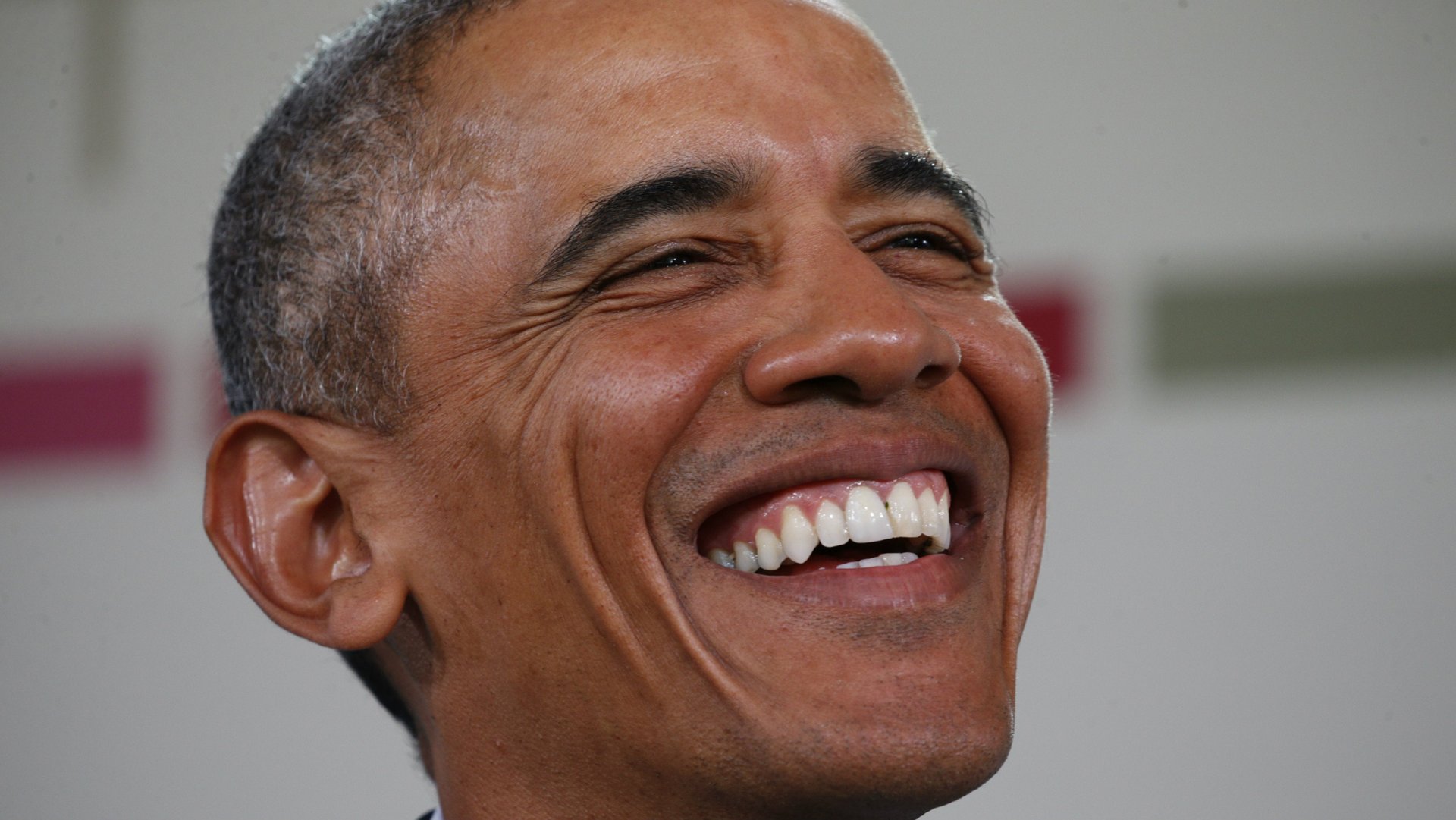World leaders smile differently, depending on their country’s culture
Barack Obama’s wide grin doesn’t necessarily mean he’s happy. A study published earlier this week in the journal Emotion has found that the facial expressions of politicians and other leaders are shaped by their culture’s expectations.


Barack Obama’s wide grin doesn’t necessarily mean he’s happy. A study published earlier this week in the journal Emotion has found that the facial expressions of politicians and other leaders are shaped by their culture’s expectations.
Researchers believe that countries which value excitement produce leaders with bigger, more excited smiles than countries that emphasize the importance of being calm—and so, for example, American leaders tend to have far bigger smiles than those in China. The smiles in photos were independently coded for excitement, taking into account such features as eye corner wrinkles and whether or not the jaw is open and lips apart. (In other words the bigger and toothier the smile, the more excited it is.)
“Often people think that when they are viewing a candidate’s official photo, they are learning about the candidate’s unique traits,” Jeanne Tsai, Stanford psychology professor and lead author of the study told Stanford News. “But our findings suggest that they are also learning about the candidate’s culture and the emotions it values.”
Previous work by Professor Tsai found that Americans are taught to value excitement, enthusiasm, and other high arousal positive states (i.e. emotions that feel good and energizing) more than those in Hong Kong, who tend to place greater emphasis on calm, peacefulness, and other low arousal positive states (namely emotions that feel good and soothing). Building on this previous work, the researchers conducted three studies to examine how culture affects smiles.
In the first study, they compared official photos of 98 American government leaders, chief executives and university presidents with 91 photos of Chinese officials in the same positions, and found that Americans had more excited smiles across the professions.
In a second study, they examined winning and losing political candidates and both high- and low-ranking chief executives. Analysis of 223 American photos and 266 photos of leaders in China and Taiwan found that Americans once again had more excited expressions—regardless of whether they were winning or losing.
Finally, the researchers conducted a survey of more than 1,200 college students from ten countries (the US, UK, France, Germany, China, Hong Kong, Japan, South Korea, Taiwan, and Mexico.) Students were asked how often they experienced various emotions over the course of a week, and ideally how often they would like to experience such states. The emotions listed included high arousal positive states, such as elated, excited, enthusiastic, and euphoric, and low arousal positive states, including serene, calm, relaxed, and peaceful.
Eight years later, the researchers coded the smiles of 3,372 legislators and found that these figures had more excited smiles if they were from a country where students ideally wanted to experience high levels of high arousal positive states. This held true after the researchers controlled for differences in democratization, human development, and GDP between the countries. France Germany
Tsai added that these cultural differences could lead to misunderstandings between leaders from various countries who work together. After all, if you come from a culture that places emphasis on excitement and encourages broad smiles, it might be disconcerting to work with someone who always keeps a straight face.